Have the Kids Left Home? 16 Things to Consider
Consider this: If you have one child and a spouse, chances are that you will be a family of three in a house for at least 18 years, assuming your kid moves away to college. Now assume you have another child a few years younger than your first, and yet another child a few years younger than your second. When all is said and done, and the kids have moved out, you will have lived in a packed house for nearly 25 years.
That’s why when that last child does leave home, leaving you with what’s known as an empty nest, you may find yourself struggling with a variety of issues, from depression to anxiety to too much celebrating. (Hey, let’s face it. After decades with kids, maybe you deserve a break.) Retiring couples and those who have lost a spouse or partner face issues as well.
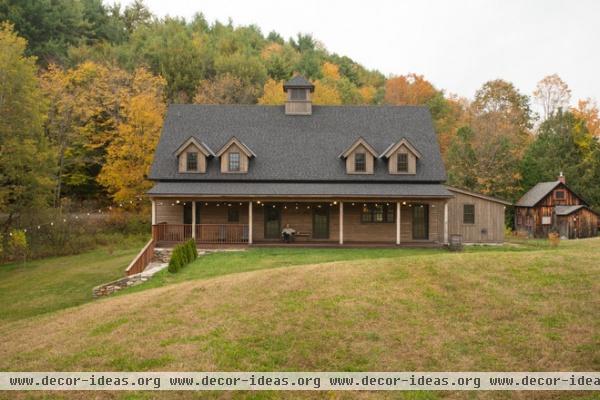
“Most people do very well with the empty nest,” says Karen Fingerman, a professor of human development and family sciences at the University of Texas at Austin. “For marital couples, it is often a period of renewed intimacy and relationship building,” she says.
But transitions can be difficult for many people, and the empty nest is a transition, she says. “Some people do experience distress when the children first move out. Regardless, most people find their well-being is improved after that initial transition. Parents notice the benefits of more leisure time. In the U.S., where grown children are expected to leave home, it is also a sign of ‘successful parenting’ when grown children are able to depart. Also, most parents discover they are able to maintain strong ties to their children, even after the children leave.”
The point is, the adjustment can and will be tough. You’ve spent all that time taking care of others, maintaining a full house and various schedules and workloads. And now things are quiet, and your house feels gigantic — your purpose unclear. What should you do? Do you move? Downsize? What if your kids get married and have kids? Do you move closer to them? There’s a lot to consider.

In a recent Houzz discussion, users weighed those options and shared their own stories about how they dealt with — or are dealing with — a sudden life change. Here’s a snapshot of the insight.
1. Don’t panic. The last thing you want to do when you find yourself with an empty house is totally freak out and make knee-jerk decisions. You need to give yourself time to adjust and assess your living situation, to consider what your new lifestyle will be like and for how long.
Just because you’ve found yourself living in a four-bedroom house with just you or you and your spouse or partner doesn’t mean you should immediately sell your home and downsize. Five years down the road, you might have four grandkids and will need somewhere to put everyone come holiday time. And, after all, you’ve been in your house for years, if not decades. You’ve poured money into remodeling. You and your kids have had many of your most memorable family moments there. That’s not easy to give up.
On the other hand, maybe that big house is just too much upkeep. Do you really want to spend all of your newfound free time taking care of that big, empty house? Or maybe you’re looking at retirement, the property taxes are too high, and it makes sense to leave the big city and find a small town where you can stretch your dollars.
So don’t act right away. Weigh all of your options. Can you afford to hire a cleaning service and landscape service to help ease some of the load? Are there any remodeling projects that could help change your living situation? Can you list your property on home-sharing sites like Airbnb to help with additional income?

2. Enjoy the time you and your partner have together — finally. You’ve earned it; now is the time to reconnect with your spouse. Take up old hobbies, go for long walks, volunteer … the sky’s the limit. “We read, watch films, attempt new crafts, do yoga and talk talk talk,” says Houzz user Karen Debenham. “We truly realize how fortunate we are right now.” Her suggestion: “Go on a date once a week and determine not to talk about the children.”
“Empty nesting is a great time to reevaluate your life and be a little selfish with your needs,” says user Cindy Yates. “After all, we raised our children to be independent people. Life is good!”
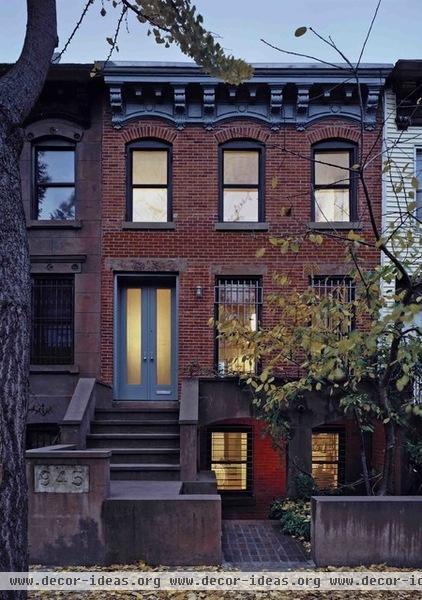
3. Try renting. Not sure what to do or where to go? Do you move near your kids, into a city? Houzz user Pamela Michael recommends renting first. “Unless you live in an extremely hot real estate market, chances are, you can sell your large family home, bank the money and try living elsewhere for a year or two without investing in buying a house. You will get time to know new neighborhoods, new interests and manage the shift such moves make with all your friends and family. Your investments will likely more than keep pace with the housing market, and you don’t have to sell a home with all its costs should the ‘ideal location’ turn out to be a bust.”
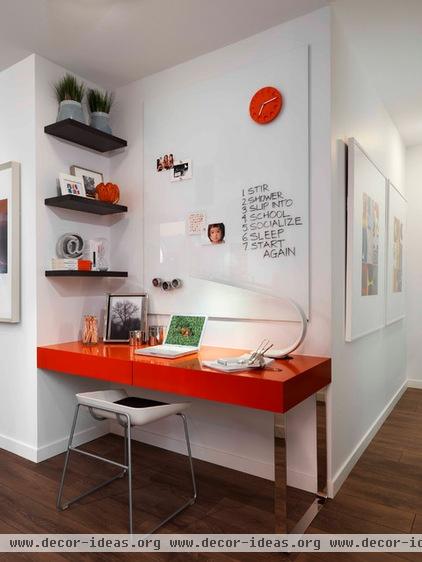
4. Embrace technology. Today it’s easy to stay in touch with loved ones through video chat services and social networks. Embrace these platforms to maintain your relationships with your kids as much as possible. “While my son was based in London for a year, Skype made it feel like he lived a block away,” says Houzz user Bronwyn Rouse.

5. Make healthy meals. With the kids gone and your family down to only one or two people, sometimes it’s easy to forgo cooking a good dinner, causing you to snack or indulge in something quick and unhealthy. Making fresh, healthy meals will keep you in good spirits and keep your energy up.
And this is a good time to try new recipes. Now that you don’t have to please numerous family members and make large portions, you can focus on experimenting.

6. Get a pet. If things feel too vacant, and you just have too much love to give, consider if a dog or cat may be right for you.
Just remember that a pet will take away some of your newfound freedom; you won’t be able to breeze out the door to go on a vacation on a moment’s notice. So give yourself some time to think through this big decision and to be certain you want a pet and have the time, energy and resources to take good care of one.
Learn what to consider before getting a dog or a cat.

7. Make friends. Living in an empty house with all that space can get lonely, even if you have a partner. It can be especially daunting if it’s just you. Try to get out there and make friends.
Houzz user Marianne Scoggin joined a local nonprofit singles dance and social club. “I find singles like to eat together, either at potlucks, restaurants, weekly Saturday breakfasts or our local Moose lodge,” she says. “I also belong to a women’s social club.”

8. Throw parties. That’s right. Go wild! Invite as many people you know over for book clubs, cocktail parties, sporting events, backyard barbecues — you name it. Having a full house every now and then will satisfy that need for socializing.
Pamela Cairns knows firsthand. “When my kids moved out, they were fairly young — each at 18 years old. My oldest moved out first, and it was difficult. But when my baby moved out, I was just devastated. Our aunt and uncle like to describe the situation: The first week crying and sobbing. The second week sniffling and small bouts of tears. The third week was a realization that this could be good. And by the fourth week, it was party time.”
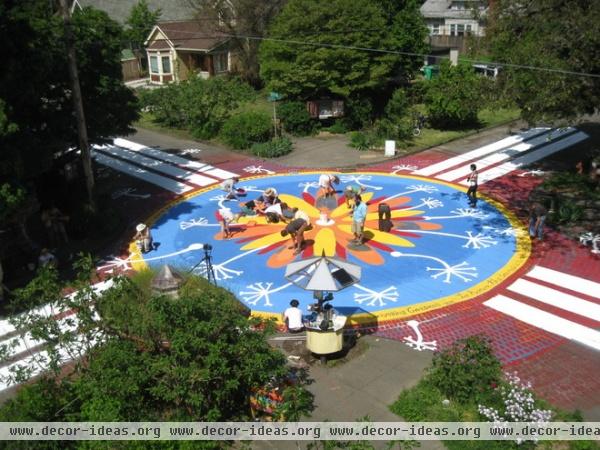
9. Get involved in your community. Another way to make friends is by volunteering in your community. Plus, if you’re an empty nester and have pretty much decided to stay put for the remainder of your life, it’s a good idea to get involved in local politics, which will sooner or later affect you and your property.
If you’re part of the baby boomer generation, remember that you are part of an enormous community with big influence and purchasing power. Use that to your advantage and lobby for your future.
10. Ask for help. Having your loved ones grow up and finally leave home can be tough, psychologically and emotionally. You’re going to need to change your relationships, and that can be hard. Of course you’ll miss them like crazy too. (Maybe not.) So be sure to communicate with your spouse or partner and family members and seek out others in your community or friends for help in weathering the storm. Remember that it’s just part of the cycle. Before you know it, your house will likely be packed again with family members and grandkids, and you won’t even remember what it was like when things were so quiet.
Here’s how Lisa Hoffman handled things: “My oldest son moved out in 2011, my youngest in 2012, and my marriage of 22 years ended about six months later. I went from large, sprawling country home to nothing. No kids, no pets, living in an apartment alone. Two years later I’m living in a 1,060-square-foot bungalow in a new city. The two years have been a tumultuous yet beautiful time. My relationship with my boys is strong. I have a grandson I adore and a circle of friends I enjoy. My boys and their friends often make the one-and-a-half-hour drive to spend weekends with me, and my little home is filled with laughter, jokes and many hugs.”
Hoffman continues: “I spent the first year alone seeing a great therapist, I took up yoga for the peace that my therapist said it would bring me, and I still do it. Yes, there were sad days, but there were more days filled with love, laughter and hope.”
“An empty nest is an empty nest,” she sums up. “The babies (no matter their age) always return home on occasion, and the nest again is a hum of activity, love and laughter. An empty nest allows you to rediscover who you are, to renew an old passion or hobby or pick up a new one. It’s a time to cultivate old friendships and grow new ones. Remember: An empty nest is not an empty heart.”

11. Tackle that remodeling project. Now that you have a sense of how your new life will go, consider tackling those dream projects you’ve always wanted to. And, if you’re aging in place, think about how your home will help assist you as the years go by. Can you make it more livable for your new lifestyle? Should you remove a second floor and add on to the first? At the very least, this is a good time for a home refresher. Try some new paint schemes or swap out furnishings. With the peanut gallery gone, you can finally make the changes you want.
To some this kind of upkeep can be therapeutic. Houzz user olldroo feels that maintaining a larger home into retirement is mentally and physically beneficial to counteract aging: “Sure, our bodies can let us down no matter what we do, and the financial aspect has to be taken into consideration, but as we are all obviously home lovers here, just that getting out of bed each day with a purpose, maintaining and decorating our homes and the physicality of cleaning and gardening, to me just has to be beneficial. There are those too who downsize and travel for months at a time or take on outside interests. Great if you have the motivation and finances to do that.”

12. Make your house yours. Whether it’s rearranging things in the house or remodeling it, remember that it’s your house and you’re the one who will be living in it. After years of considering your other family members’ needs, now’s the time to make your home yours.
“A tidy, organized home had been my fantasy whilst the kids were growing up,” says Bronwyn Rouse. “In those precious moments to myself, I would daydream of my dream home where you could open a cupboard without having to slide your hand in first to hold the contents from spilling out. Where you could have a white sofa!”

13. Make sure your kids actually move out. This can be tough, but oftentimes kids move out and still leave behind boxes of their stuff or expect to keep their belongings in their old room. This can sometimes prevent you from truly moving on and focusing on being an empty nester. Let your kids know that you’re repurposing the house to suit your needs, and it’s time to either pick up their stuff or say goodbye to it. That way you can finally turn that unused bedroom into a guest room, craft room, home office, TV room or whatever else you have in mind.
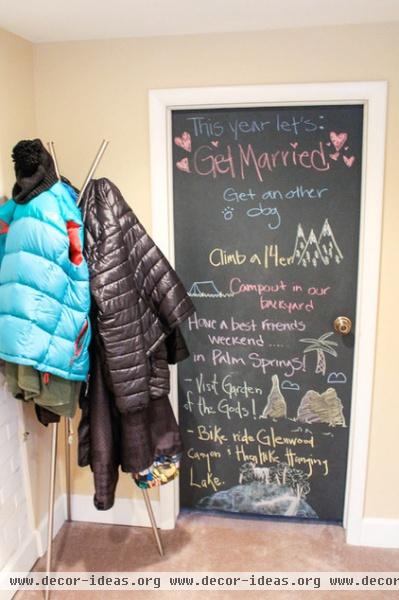
14. Make a dream list. Write down all the things you’ve ever wanted to do should you suddenly be granted free time. Well, now that you have time, start tackling that list. This helps Houzzer pluckygirl when she gets nostalgic for the good old family times. “As much as I cried when the last one left, I’m surprised how much I love the quiet house and the ability to be spontaneous again. I don’t miss the endless laundry piles and dirty bathrooms, but I sometimes miss opening the fridge and not finding the wonderful leftovers from a nice family dinner. When nostalgia hits me and I find myself missing the busy life of raising kids, I get out my list of the things I’ve always wanted to do and start planning. It usually does the trick.”
Rouse has another approach: “I have written myself three letters, one to be opened at 70. In a nutshell it says, ‘Start getting rid of stuff.’ The one to be opened at 75 says, ‘Start looking for a smaller, single-level home in town where you can walk to services.’ And the third, to be opened at 80, says, ‘If you haven’t moved yet, do it now!”
15. Take a retirement course. No, seriously. These big changes can be challenging both financially and mentally. Take it from Rose Pledger. “Just before I retired, I took a retirement course to help prepare myself for the changes ahead,” she says. “Of everything I learned and made notes about, the thing I remember most is this saying about the three stages of retirement life. In retirement you have the Go, Go, Years; the Go Slow Years; and the No Go Years. Note that there are no ages attached to any one stage, which is the most important point about the three stages.”
She continues: “Obviously, one needs more money in the Go, Go Years of retirement. Travel when you can, do activities, sell the house, buy that sailboat, start chipping away at the bucket list. Sometimes selling the family house and downsizing is your ticket to do some of those things on the list. It was for hubby and I. But it may not be for others. We did not want to put off our list for down the road. As much as we hope for a large window to stay in the first stage of retirement, one just never knows. Time for me and hubby to live it big and dance in the sun.”
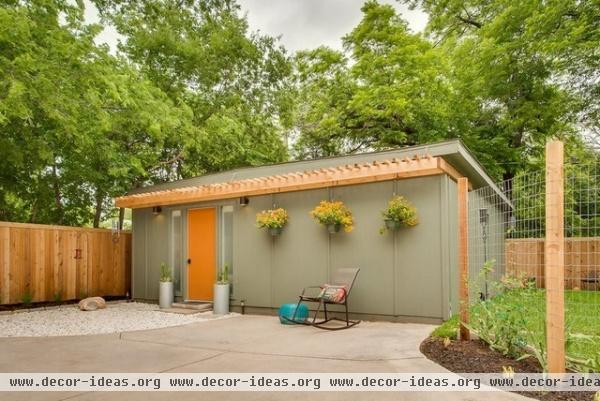
16. Discuss living with your kids. This arrangement isn’t for everyone, but as you age, you might need someone to take care of you. It might make sense to sell your home and invest in adding a unit on to one of your children’s existing homes or properties.
Join the discussion!
More: When You’re Suddenly Solo at Home












